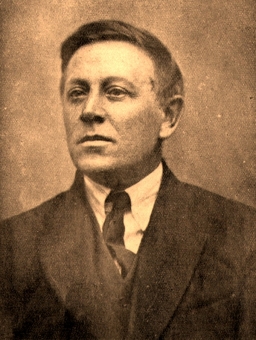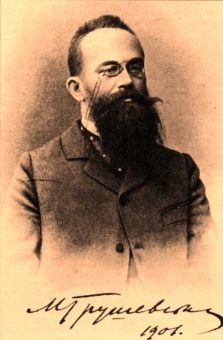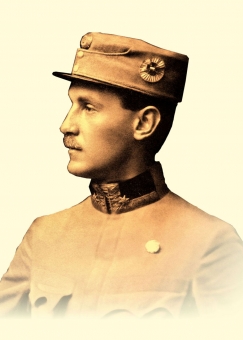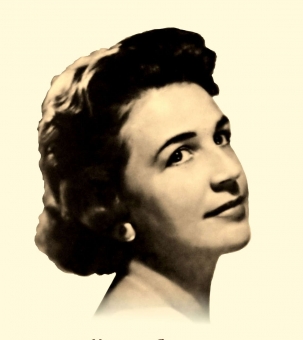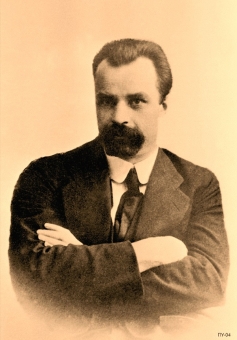
Volodymyr
Kyrylovych Vynnychenko (Ukrainian: Володимир Кирилович Винниченко, July 26, 1880 – March 6, 1951) was a Ukrainianwriter, playwright, artist, political activist, revolutionary, politician, and statesman. Vynnychenko is recognized in Ukrainian literature as a leading [Modernist
literature|modernist writer]] in prerevolutionary Ukraine, who wrote short stories, novels, and plays, but in Soviet Ukraine his works were proscribed, like that of many other Ukrainian writers,
from the 1930s until the mid-1980s. Prior to his entry onto the stage of
Ukrainian politics, he was a long-time revolutionary activist, who lived abroad
in Western Europe from 1906-1914. His works reflect his immersion in the Ukrainian and
Russian revolutionary milieu, among impoverished and working-class people, and
among emigres from the Russian Empire living in Western Europe.
Biography
Vynnychenko
was born in Yelisavetgrad (Kirovohrad), the Kherson Governorate of the Russian Empire in a family of peasants. His father Kyrylo Vasyliovych Vynnychenko earlier in his life was a
peasant-serf has moved from a village to the city of Yelisavetgrad where he
married a widow Yevdokia Pavlenko (nee: Linnyk). From her previous marriage Yevdokia had three children: Andriy,
Maria, and Vasyl, while from the marriage with Kyrylo only one son Volodymyr.
Upon graduating from a local public school the Vynnychenko family managed to
enroll Volodymyr to the Yelyzavetgrad Male Gymnasium (today
is the building of the Ukrainian Ministry of Extraordinary Situations). In
later grades of the gymnasium he took part in a revolutionary organization and
wrote a revolutionary poem for which was incarcerated for a week and excluded
from school. That did not stop him to continue his studying as he was getting
prepared for his test to obtain the high school diploma (Matura). He successfully
took the test in the Zlatopil gymnasium from which obtained his attestation of maturity.
